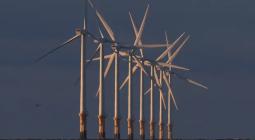Seven EU countries call for cautious electricity market reform

A group of seven EU countries has called on the European Commission to keep its upcoming reform of the electricity market “targeted” and focused on measures that will enable the green transition while ensuring affordable energy for consumers.
Electricity prices skyrocketed across Europe last year as Moscow turned off the gas tap in retaliation for EU sanctions imposed against Russia over its military aggression in Ukraine.
Pressed by EU governments to address this, the European Commission is currently preparing a review of EU electricity market rules, arguing that EU power markets need to be adapted to the “new realities of dominant renewables” and higher gas prices.
Spain and France were among the countries calling for a root-and-branch review of electricity market rules, but not all EU countries share this view.
In a joint letter, published on Monday (13 February), Germany, Denmark, Estonia, Finland, Luxembourg, Latvia and the Netherlands called for a cautious approach that preserves the current market setup.
“The integration of the EU electricity market over the last decade has brought enormous benefits for the EU, including lower wholesale prices, greater security of supply and enabling the large-scale integration of renewable energy,” says the joint letter.
Any reform, therefore, needs to be assessed on how it would contribute to these aims, the the seven countries argue.
“It should support a transition to a decarbonised system at the lowest possible cost to our societies and ensure that security of supply is always safeguarded while transitioning to a highly efficient renewable based energy system,” they say, adding this will benefit consumers and protect them from price peaks.
The European Commission agrees that preserving the benefits of the current design should be a priority.
“It took 30 years to design this market. Let’s make sure we don’t throw out the baby with the bathwater when we change it,” Executive Vice-President Frans Timmermans told EURACTIV in an interview in January.
The letter counterbalances the pressure from Mediterranean countries to radically overhaul the EU’s electricity market, says Bram Claeys from the Regulatory Assistance Project (RAP), a think tank.
“Market reform should build on what works well and support renewable energy and consumers,” he told EURACTIV.
However, he added that the reform will need to go beyond general statements in order to provide renewable energy projects and demand-side resources with the same support as traditional power plants.
“Targeted” changes
Changes to the electricity market should be “targeted”, assessed and guided by five principles, according to the seven countries.
The first is maintaining the benefits of EU electricity market integration, which has seen growing links between countries and helped maintain energy security in regions hit by supply problems last year.
The second is boosting the rollout of renewables by creating a “reliable, predictable and robust” market framework to create investor confidence.
“Geopolitical challenges” have made the need for a competitive investment environment even clearer, the seven countries add. “Therefore, we are also sceptical towards making general revenue limitations,” the letter adds in reference to the windfall profits tax introduced in Spain, which was later adopted at EU level as part of a temporary package of emergency measures to tackle the crisis.
This is music to the ears of power industry association Eurelectric, which has balked at the tax, saying it is causing massive uncertainty for investors.
cover : German vice-chancellor Robert Habeck and Dutch minister Rob Jetten at a meeting of EU energy ministers [European Union]





